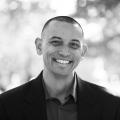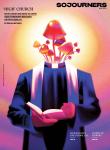This isn’t the column I planned to write this week, but in light of the rapidly developing COVID-19 crisis, it’s the column I that I felt needed to be written. We all have a part to play in slowing the spread of the virus, and each of you reading this has an important role to play by immediately adopting best practices, including social distancing. As medical historian and epidemic expert Howard Markel recently put it, “Coronavirus is a socially transmitted disease, and we all have a social contract to stop it. What binds us is a microbe – but it also has the power to separate us. We’re a very small community, whether we acknowledge it or not, and this proves it. The time to act like a community is now.”
When Jim Wallis’ column about the impact of coronavirus on the most vulnerable went live last week, the United States had identified just over 200 cases of COVID-19, even though the illness caused by the coronavirus has been spreading around the world for the past four months and this week was declared a global pandemic by the World Health Organization. As we go live with this article today, nearly 1,300 cases have been identified in the United States, and it very much seems that this number will continue to climb rapidly in the days ahead. It’s also important to understand that the actual number of people with COVID-19 right now is much, much higher than 1,300, given how little testing has actually been done in the United States so far.
As I write this piece, my sons are not at school but home with me, because their elementary school decided to start Spring Break three days early to slow possible transmission of the virus and keep the community as safe as possible. While this has caused some inconvenience, I realize just how fortunate I am — I can work from home when needed and I have access to both sick leave and personal days. This is not the case for the majority of workers in the country. Congress will likely be voting soon on the Families First Coronavirus Response Act, which would provide urgently needed funding and provisions for free testing, three weeks of paid sick leave, unemployment insurance, supplemental food stamps, and nutritional support to kids who depend on school lunch. I’m hopeful and prayerful that the White House and Congress can transcend politics in this moment and pass this bill, because the virus knows no party and a bolder response is overdue.
While we’ve seen considerable success in containing the outbreak in places like Hong Kong, Singapore, and South Korea, where officials acted early and aggressively, the individualistic nature of our society and the value we place on personal liberty means that approach was always going to be more difficult here. What is most needed is assertive and proactive public leadership that is defined by calm urgency; clear, consistent, and truthful communication; and effective coordination across every level of government. Tragically, the slow rollout of testing in the United States, the broad distrust of public servants and government agencies this administration has displayed over the past three years, and the downplaying of the severity of the crisis by President Trump and some of his media allies means that some of the most trusted experts are now saying that we are past the point of containment. Instead, there are increasingly widespread calls for more and more aggressive forms of social distancing (a public health term that means minimizing close contact with others to slow the rate of new infections) to be implemented sooner rather than later. In short, as the appropriately dramatic title of this Atlantic piece puts it, “Cancel Everything.”
The slow and halting response is exposing the consequences of poor and mismanaged government leadership. We often take for granted strong and competent government until our lives and livelihoods depend on it. Good and effective government would have put public health experts such as Dr. Anthony Fauci in the primary role of communicating to the public what must be done and wouldn’t undermine or contradict their evidence-based prescriptions about the severity of the crisis and what must be our response. In Romans 13 the Apostle Paul summarizes the principal dual roles that public authorities must play to both restrain evil and to advance the common good. While COVID-19 does not discriminate in how it spreads, its most lethal effects prey upon the elderly and the vulnerable, which means it has become a public health evil that we can and must stop. Taking the necessary precautions to protect ourselves and the most vulnerable among us represents the very essence of what it means to advance the common good in the face of a severe and for too many, deadly virus.
COVID-19 is also testing our understanding and commitment to our interdependence as the body of Christ. In I Corinthians 12 the Apostle Paul casts a vision of the church as functioning as a human body, and “when one part suffers, all parts suffer with it.” Since the virus’s potentially lethal impact depends so much on age and underlying health conditions, it is most dire for the already vulnerable. This reality can lead to a false sense of security and even to selfish complacency among those of us who are under the age of 60 and don’t face any other health challenges. Yet this provides a fleeting sense of security because of the likelihood that we will inadvertently spread the virus to those who can least afford to contract it. Therefore it is both a moral and pragmatic imperative to take this outbreak seriously and play our part to protect ourselves and others, particularly those most in harm’s way.
As has been pointed out by experts in the Economist and on social media, we must work together to “flatten the epidemic curve” — which means slowing down the rate at which people are infected and spreading it out over time so that hospitals can keep up with the demand for life-saving health care. Consider this simple but widely circulating chart:
1. A very short thread on the power of data graphics and scientific communication.
— Carl T. Bergstrom (@CT_Bergstrom) March 6, 2020
Roughly a week ago, some very smart person* sat down, drew this graph, and saved lives.
(*It's 2 AM. Without an economist subscription, I can't quickly discover whom. Maybe someone can help.) pic.twitter.com/eU71Eu60eS
As people are pointing out elsewhere, the best real-life contrast in approaches may be the difference between how Philadelphia and St. Louis handled the 1918 flu outbreak that killed tens of millions worldwide. Because St. Louis acted earlier and more aggressively, the per capita fatality rate was half that of Philadelphia’s because the number of people who were sick at any given time stayed much lower and didn’t overwhelm hospitals’ ability to treat them.
Churches and clergy (and platforms like Sojourners) have an indispensable role to play in any crisis, including a public health crisis like this one. As Nathan Dove put it so compellingly on Monday, the fact that many congregations are deeply politically divided, and as a result are consuming different types of information about the COVID-19 outbreak, makes it that much more important for pastors and other church leaders to seek out the facts and tell the truth to parishioners. As he puts it: “For pastors who are often tasked with ministering to folks from across the political spectrum, they must decide, at the risk of partisan accusations, whether to use their platform to dispel mistruths circulated about the coronavirus. While some pastors may have been willing to overlook some disinformation in an effort to keep the peace and, let’s be honest, the offering plate intact, this time lives are at stake.”
Past outbreaks of dangerous diseases can be instructive in showing us the critical role that the faith community can and should play as both trusted messengers and models of the necessary levels of caution and preparation. During the largest Ebola epidemic in history — which caused 10,000 deaths and infected more than 26,000 people — I was working at the World Bank leading the Faith Initiative. While Ebola is far more lethal, the response offers some applicable lessons, particularly the pivotal role that churches and mosques played in calming panic and changing public behavior. People across the world express greater trust and confidence in religious leaders than in government leaders, making them credible and critical actors in shaping and influencing public behavior. Dr. Katherine Marshall argues that throughout the Ebola crisis that ravaged West Africa — in addition to providing health, education, and social support — religious leaders and institutions replaced traditional burial practices with the WHO Safe and Dignified Burial Protocol, which was vital in halting the spread of the disease and laying foundations for community trust.
It’s undeniably the case that, painful as it might be economically, socially, and even spiritually, many churches will have to reconsider what worship and other gatherings should look like for a while. If social distancing is indeed the most effective strategy we can undertake as a society to mitigate the impact of this epidemic, one of the church’s most important functions right now may be to take as many of its activities online and over the phone as possible. Already, the Episcopal Diocese of Washington has suspended worship services until March 25. Congregations should strongly consider acting more proactively and aggressively than other institutions in the community might currently be for a couple of reasons. As discussed in other contexts, the long incubation period for the virus means it’s often too late to wait until people in the congregation are confirmed to have COVID-19 because people may feel perfectly well and still be passing the virus to the people they come into contact with. Second, as trusted institutions in the community, modeling the behavior and level of caution that’s necessary to mitigate the impact of the epidemic helps individuals to take it seriously and do the same, and helps leaders of other community institutions to follow churches’ lead.
The mantra you may have been hearing and reading in recent days, “Preparation, not panic” is indeed the correct approach, no matter how bad things get. In 2 Timothy 1:7, Paul tells us, "For God hath not given us the spirit of fear; but of power, and of love, and of a sound mind.” This is a time for us to use our power, love, and sound minds to act rationally but decisively to help keep those most vulnerable to COVID-19 safe and cared for by slowing its spread, thus buying time for our health care providers to meet the surge of need that is almost certainly coming. Dr. Tedros, Secretary General of the World Health Organization, echoed this call yesterday saying, “Today’s declaration of a pandemic is a call to action – for everyone, everywhere. It’s also a call for responsibility and solidarity – as nations united and as people united. As we fight the virus, we cannot let fear go viral … Let’s overcome this common threat together.”
Got something to say about what you're reading? We value your feedback!








